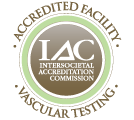Acute Coronary Syndrome (ACS)
Acute Coronary Syndrome (ACS) – What Is It?
ACS occurs when there is a sudden narrowing of the arteries that feed the heart. The narrowing may cause chest pain and, in the most serious cases, result in a heart attack. ACS is the umbrella term used for conditions like a heart attack or unstable angina, all of which are caused by the heart’s blood supply being blocked.
It is a very serious medical emergency. The block may be complete, fully obstructing blood flow, or may clot, break open and clot again, disrupting but not fully blocking the artery. The term is not commonly used among patients, who would hear the condition referred to in more simple terms such as “heart attack.”
How is ACS Caused
There are many factors that contribute to causing acute coronary syndrome. Causes are similar to heart failure and stroke, and people who smoke, are physically inactive, overweight or obese are at a higher risk for developing ACS. Additionally, those with diabetes, high blood pressure, high cholesterol and/or a family history of heart disease are more likely to develop complications. Your physician can help determine your personal risk level.
Symptoms of Acute Coronary Syndrome
If you suddenly experience any of the following symptoms, you may be suffering from ACS. Take these warning signs seriously and call 9-1-1 immediately:
- Chest pain or pressure that feels tight or full
- Discomfort or pain in the jaw, neck, back, stomach or one or both arms
- Dizziness or lightheadedness
- Shortness of breath
- Nausea
- Sweating
The symptoms may come on suddenly, as is the case with a heart attack. They may also become unpredictable and worse with rest, as is the case with unstable angina. No matter what, seek urgent medical attention if you experience any combination of these symptoms.
How it is Diagnosed
Acute coronary syndrome can be diagnosed by a doctor after performing a physical examination and gaining a thorough understanding of a patient’s medical history. The doctor may perform a blood test which can reveal if heart cells are dying, or an electrocardiogram (also known as an ECG or EKG) to determine the electrical activity of the heart.
If doctors discover a block, they will work as quickly as possible to re-open the artery. The longer the artery is blocked, the more myocardium (heart muscle) will be lost. The best recovery results are experienced when patients receive treatment within four hours of showing symptoms. For this reason, seeking treatment quickly is crucial.
How ACS is Treated
Treatment for ACS may include medicines and a procedure known as angioplasty, where a small balloon is inflated to open the artery. A wire mesh tube, known as a stent, may be placed in the artery to permanently keep it open. If a hospital is not able to performangioplasty in a timely manner, drugs that can dissolve the blood clots may be administered.
The Vascular Experts can help determine if you or a loved one is at risk or suffering from acute coronary syndrome. Using the latest technology, our experienced team can accurately and quickly diagnose and treat patients. We take pride in providing a high level of preventative care and treatment services.



